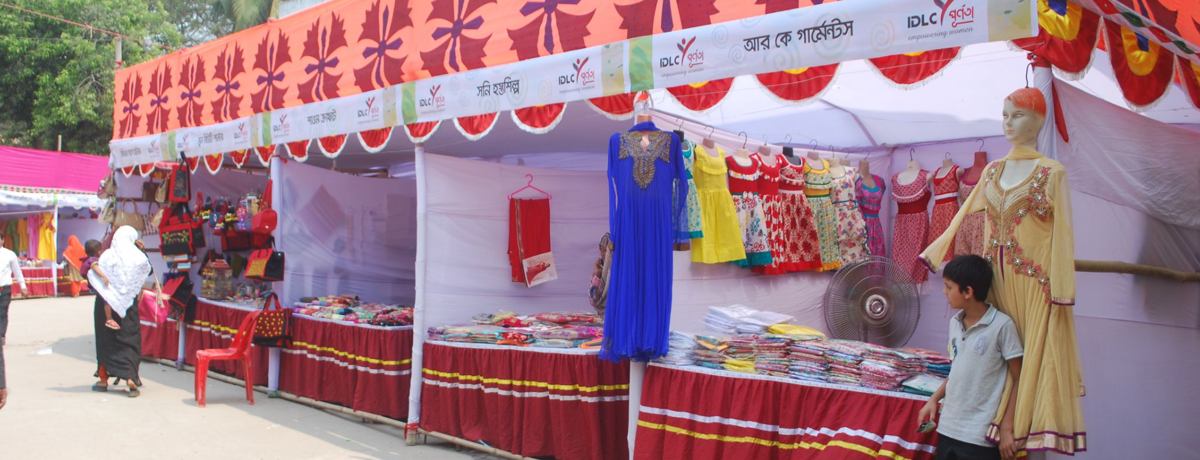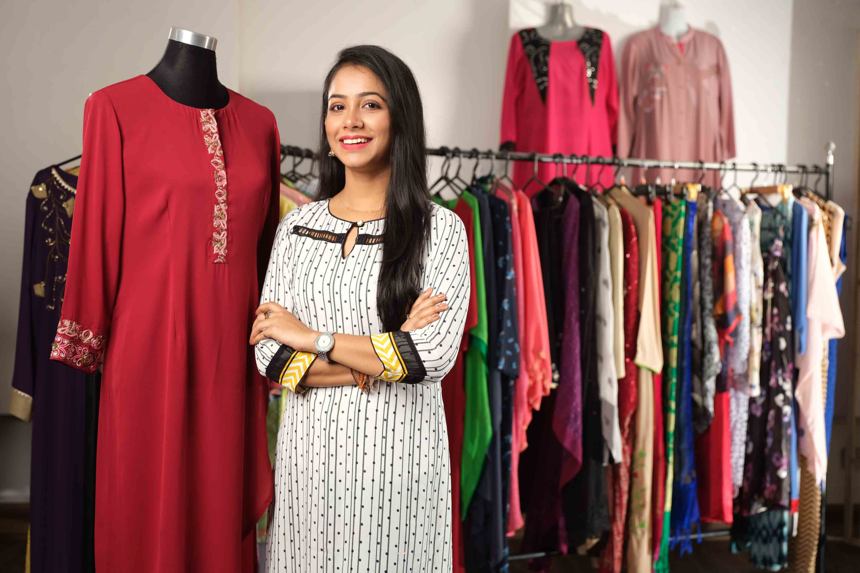
Bangladesh's economy has grown steadily over the last decade. There has been a parallel surge in the number of startups and new businesses. A plethora of government and private sector initiatives have brought a new pace to entrepreneurial activities. The number of women-founded companies, however, remains slim.
Experts across the board agree that harnessing the potential of women entrepreneurship can be transformative for a society promoting innovation, economic growth, and job creation. Despite the consensus, women entrepreneurs rarely get the support their male counterparts enjoy easily. Women's representation remains limited in senior leadership positions across sectors.
Bangladesh has been found to be in a group of countries where women entrepreneurs struggle. For example, Bangladesh came last among 58 countries in the 2020 Mastercard Index of Women Entrepreneurs. Women entrepreneurs often grapple with a less favorable social environment, difficulty accessing resources such as finances, access to market, opportunities, training, and much more.
Taslima Miji, a serial woman entrepreneur, started her entrepreneurial journey in the computer hardware sector. She now runs a successful leather goods design and manufacturing company in Dhaka.
Ms. Taslima reflects on her journey: “at the beginning, it was tough. I was new, knew nothing, and had to learn by doing.” Building a business from scratch is hard. Lack of support makes it back-breaking for women founders. Ms. Taslima explains: “It takes a woman double effort to do everything. The business remains a male-dominated realm.” She illustrates the practical challenges of women founders: “banks don’t welcome new entrepreneurs. If you are a woman things can be perplexing. Many financial institutions view women as less reliable.”
Over the years, we have interviewed a long list of successful female founders who have overcome insurmountable obstacles. The number continues to increase. On an institutional level, the Bangladesh government has launched several initiatives to improve support for women entrepreneurship. Bangladesh Bank has dedicated financing programs.
Women's participation in the labor force has progressed notably, from 15.8 percent in 1995-96 to 35.6 percent in 2016 (BBS, LFS). An estimated 0.43 million women entrepreneurs own and operate businesses accounting for 5.9 percent of the total entrepreneurs in the country (Economic Census, 2013).
While more recent data is not available, several female founders we have interviewed, as well as recent media reports, highlighted a steady rise of women-founded businesses.
Regardless of gender, building a business is a difficult prospect. For women entrepreneurs, however, challenges are part of a broader, more pronounced gender gap in society. Some key challenges female founders face in Bangladesh:
Access to finance. For female founders, the funding environment remains dismal. Several female entrepreneurs we spoke observed a great deal of skepticism towards women entrepreneurs that many funders consider female founders ‘high-risk’.
Access to market and networks. Since society considers the business to be a domain of the male, female founders face considerable challenges in building connections, often struggling to find an appropriate role in social gatherings. Not being able to build networks further impedes the progress of women entrepreneurs because in business relationships matter.
Business skills and legal process. A 2018 BIDS study observes “around 81% of the current (women) entrepreneurs have no prior experience of taking part in economic activities”, which leads many to make seemingly small mistakes that impede their progress. For example, many women SME entrepreneurs struggle with bookkeeping, which is critical for assessing records and creditworthiness. Many entrepreneurs do not maintain a bank account for their business, which is equally important. These basic things are critical if an entrepreneur wants to access institutional financing.
Gender bias. Several women entrepreneurs we interviewed said people often don’t take female founders seriously, treating them as less competent. Ferdousi Jasmine Mala, an SME entrepreneur, shared her experience: “initially it was difficult to convince my in-laws. My neighbors would make rude comments. But I have been passionate about my work and hence managed to survive.”
While overall social perception towards women entrepreneurship has improved over the years, female founders are still required to fight many of these challenges daily.

Started by addressing the challenge of access to finance, IDLC Purnota has evolved into a comprehensive suite of solutions and a robust support system for women entrepreneurs in Bangladesh.
IDLC Finance has worked with women entrepreneurs and development partners to find effective solutions to many of the challenges women entrepreneurs face in Bangladesh. IDLC, the largest non-banking financial institution in Bangladesh, has done highly impactful works in several sectors including excellent award-winning works in the SME sector.
IDLC started providing loans to women entrepreneurs through its SME loan products launched around 2006. The company eventually launched a dedicated product for Women SME entrepreneurs called Purnota in 2015, one of the first financial services for women entrepreneurs in Bangladesh.
Started by addressing the challenge of access to finance, IDLC Purnota has evolved into a comprehensive suite of solutions and a robust support system for women entrepreneurs in Bangladesh.
Purnota loan starts from BDT 2 lakhs, and eligible women entrepreneurs can access mortgage-free loans up-to BDT 35 lakhs. The processing time for Purnota loans takes between one week to 14 days maximum if an entrepreneur meets the requirements and submit a complete application. To date, IDLC Purnota has supported some 5300 women entrepreneurs and has done some tk. 4451 million of financing with an excellent 1.11% NPL ratio, one of the lowest in the market.
Purnota provides both financial services such as loans, deposits, etc, and non-financial business-building services such as market access, training, awareness building, etc to women entrepreneurs.
For example, IDLC Purnota organizes an annual fair, mostly outside Dhaka, called Purnota Fair to facilitate market access and networking for female entrepreneurs. Purnota Fair helps women entrepreneurs promote their products, build networks with other women entrepreneurs and buyers. The company encourages Purnota entrepreneurs to attend fairs organized by Bangladesh Bank and SME Foundation. Purnota has also been helping its clients connect with government-initiated EkShop -AnondoMela and other ecommerce platforms.
Female founders often struggle with business registration. Many female founders fail to launch a business for not having enough knowledge of the required legal process to start a business. To address the challenges, IDLC has introduced business facilitation support under Purnota. Female founders can get this support from 28 SME branches of IDLC across the country.
In collaboration with SME Foundation, IDLC Purnota organizes training programs on various business topics such as bookkeeping for female entrepreneurs, especially for those who live outside Dhaka.
IDLC helps women entrepreneurs who don’t receive mainstream support and rely on informal sector financing to become bankable. IDLC Purnota has taken several initiatives to improve awareness among women entrepreneurs across the country regarding financing options they have and the importance of documentation.
Last year, IDLC partnered with iDE to raise awareness among women SMEs regarding low-cost financing schemes and help them understand how the banks and NBFIs assess the creditworthiness of a business. The company provided training and coaching to over 200 women entrepreneurs through the collaboration.
IDLC continues to reach out to and support female founders in the remotest places in the country serving underserved women entrepreneurs, an approach that separates Purnota from its peers in the segment.
Purnota provides both financial services such as loans, deposits, etc, and non-financial business-building services such as market access, training, awareness building, etc to women entrepreneurs.
Industry insiders suggest the market for serving women founders offers an excellent opportunity for financial institutions and can create opportunities and help the economy grow. For that to happen, social and structural support for women entrepreneurs is critical that are outside of the control of individual entrepreneurs.
That being said, success for individual founders also depends a lot on their tenacity and conscientiousness. Overcoming the challenges female founders face is a matter of grit and passion of individual women themselves. Ivy Huq Russell, Founder and CEO of Maya, puts it beautifully: “determination and tenacity are the most important factors. Don’t let anyone tell you can’t do it – not even you.”
The challenges women founders face are complex and multidimensional. It demands a comprehensive response. IDLC’s approach brings a new dimension to interventions taken to change the lives of women entrepreneurs by improving access to finance, market, network, opportunities and offers an important lesson in designing effective strategies for empowering women entrepreneurs in any market.
Learn more about IDLC Purnota

